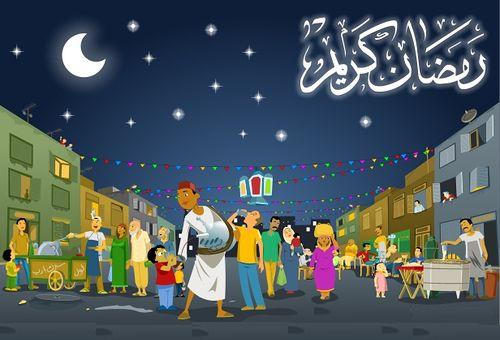Ramadan is the opportunity to earn rewards and blessings of Allah Almighty. As it comes once in a year, Muslims should try to gather maximum benefits from it. Each one of us should make an individual effort to make this holy month productive and beneficial. Following some tips will help you in spending Productive Ramadan.
- Islam is the religion which gives more importance to intentions than actions. Therefore having sincere and clear intentions is very important. It is considered to be the key to productive Ramadan.
- Plan out your day before it starts. To make Ramadan productive think of three good and religious acts that you want to complete next day. This is helpful in scheduling your routine.
- Do not miss Suhoor at any cost. You must get up before Fajar and take balanced and nutritious meal. It is important as it will keep you active the next whole day.
- Early morning duas and recitation of Quran are very precious to Allah Almighty. Therefore you must start your day by reciting Holy Quran. Whoever does it, Allah Almighty eases his hardships.
- Fating in summers is difficult and painful. The best way to stay active is to take small nap after the prayer of Dhuhr. Keep the nap short and get up before Asar prayer.
- Plan your activities by keeping in mind the timings of prayers. Give prayer the due priority and plan your Ramadan days around its timings.
- Always break your fast with dates as it is the Sunnah of Hazrat Muhammad (PBUH). You can take water or milk along with dates. Offer Maghrib prayer and then take a light meal.
- Recitation of Quran in the month of Ramadan has unlimited benefits. Allah Almighty says:
“Whoever finishes Quran in this month, and make it a part of his daily routine will be rewarded in Jannah”
Therefore to gain most out of Ramadan and to make it productive, recite Holy Quran for at least one hour per day.
- Zakat is considered a very religious and important act of Islam. As its value increases in this month, Muslims should attach themselves with different Iftar communities or other charity drives to help people who deserve it. The Holy Quran states that:
“Zakat is for the poor, and the needy and those who are employed to administer and collect it, and the new converts, and for those who are in bondage, and in debt and service of the cause of Allah, and for the wayfarers, a duty ordained by Allah and Allah is the All-Knowing, the Wise.”
